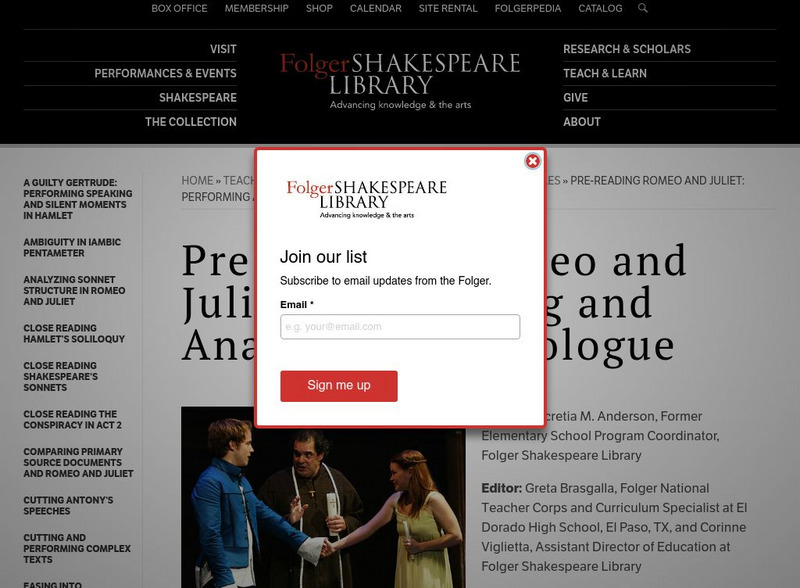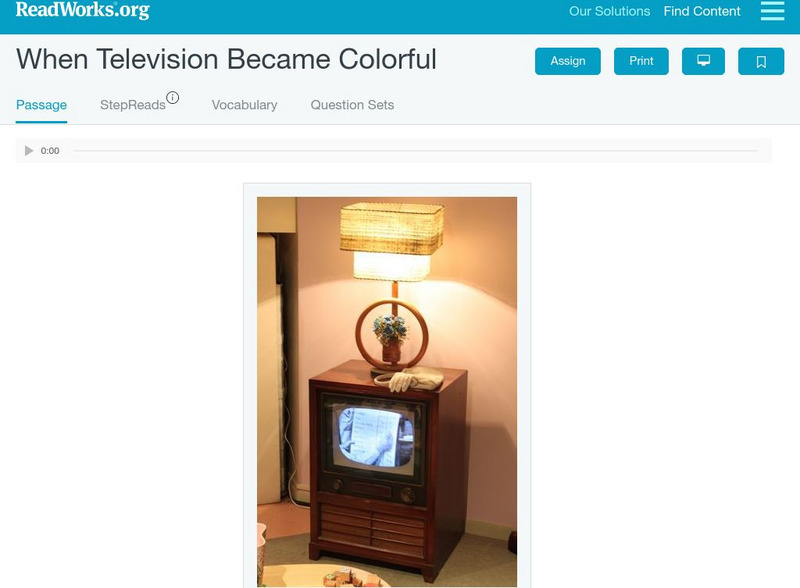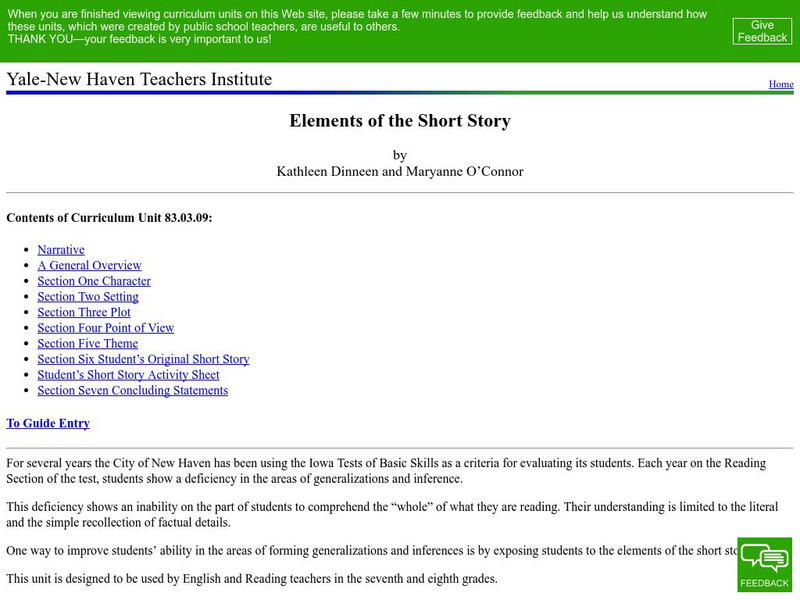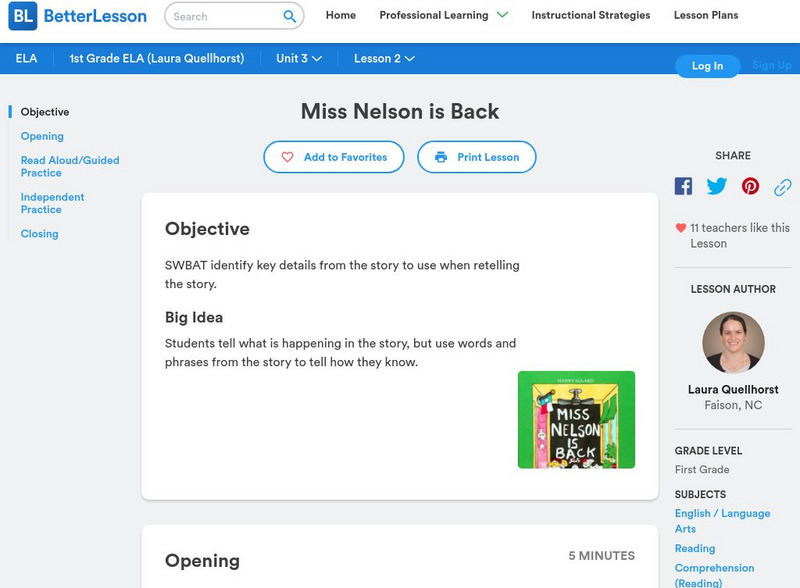Reading Rockets
Reading Rockets: Building Background Knowledge
The importance of background knowledge is especially salient in the age of Common Core. This article offers practical classroom strategies to build background knowledge such as using contrasts and comparisons and encouraging...
Folger Shakespeare Library
Folger Shakespeare Library: Pre Reading Romeo and Juliet
This site shares a two-day instructional activity that will help learners prepare for reading Romeo and Juliet. Students will read and perform the prologue of Romeo and Juliet and engage in the analysis of the play's meaning, get to know...
E Reading Worksheets
E Reading Worksheets: Inferences Worksheets
In this learning module, students will learn more about making inferences. Worksheets are provided to reinforce the skill of making inferences. This module is designed to support Tier I, Tier II, and Tier III students.
Better Lesson
Better Lesson: Using Word and Picture Clues to Make an Inference
First graders will use text evidence to make inferences about word and word phrase meanings in a text. Word and picture clues will be used to help students form inferences.
E Reading Worksheets
E Reading Worksheets: Implicit Character Traits Worksheet
In this learning module, students will practice making inferences about character traits. A worksheet is provided to practice with finding implicit character traits. This module is designed to support Tier I, Tier II, and Tier III students.
Read Works
Read Works: Passages: Grade 2: When Television Became Colorful
[Free Registration/Login Required] Students read a non-fiction article about colored television and answer questions in comprehension, sequencing, inferences, main idea, transitions, and more.
ReadWriteThink
Read Write Think: Background for the Graphic Novel Persepolis: A Web Quest on Iran
This lesson focuses on students researching and learning about Iran's culture, society, and leadership before and after the 1979 Revolution in preparation for reading the graphic novel Persepolis. Students work in small groups to...
Phil Tulga
Phil Tulga: Inference Riddles: Inference Riddle Game
In this game, students are asked to infer what is being described. They click on "Press to Show a Clue" revealing a line of the riddle until they have an idea of what is being described; next, they type their guess into the "Make a...
Thinkport Education
Thinkport: Research Simulation Task
Engage in a research process by analyzing a variety of print and non-print texts on the subject of bullying, identifying evidence regarding the topic, and using this new information to respond to questions about the text and the topic.
Yale University
Yale University: Elements of the Short Story
This unit from the Yale University on elements of the short story is designed to develop student comprehension skills, particularly making inferences and generalizing. It also involves students in reading a number of short stories to...
Better Lesson
Better Lesson: Miss Nelson Is Back
First graders tell what is happening in the story, but use words and phrases from the story to tell how they know.
National Endowment for the Humanities
Neh: Edsit Ement: Stephen Crane's "The Open Boat"
In this lesson, students will examine the relationship of man and nature as portrayed in "The Open Boat," based on Crane's suffering from a shipwreck on The Commodore in which he spent thirty hours on a small boat at sea before being...
National Endowment for the Humanities
Neh: Edsit Ement: Introducing Metaphors Through Poetry
This lesson is designed to help students begin to engage with metaphors on a deeper and more abstract level. The lesson will begin with a poem containing metaphors accessible at all levels, and with each poem, the lesson will progress in...
Alabama Learning Exchange
Alex: What a Character!
This lesson opens up the world of writing by introducing learners to the point of view in a story. Students will have the opportunity to read a new version of a classic story and see how it changes when it is written from another...











